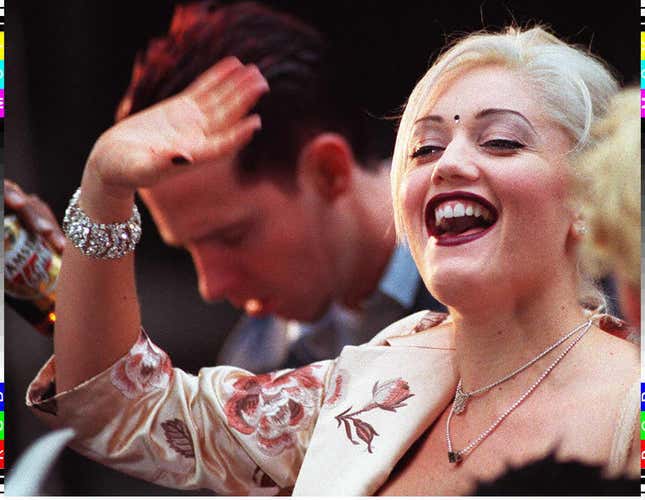Gwen Stefani Doesn't Get What the Big Deal Is About All Her Cultural Appropriation
Celebrities

In a recent profile in Paper Magazine, Gwen Stefani decided to once again stick her foot in her mouth when talking about cultural appropriation by defending the Harajuku Girls, the group of Japanese backup dancers who accompanied Stefani at the beginning of her solo career. Of course, the Harajuku Girls were just one part of Stefani’s appropriation empire—she was also integral to popularizing the cringe-worthy trend of white women wearing bindis, and, of course, who could forget her Frida Kahlo cosplay in the “Luxurious” video??
Apparently, Stefani got her inspiration to co-opt and profit off of the Japanese culture from the business trips her father took to Japan when she was a child.
“So I had this idea that I would have a posse of girls — because I never got to hang with girls — and they would be Japanese, Harajuku girls, because those are the girls that I love. Those are my homies. That’s where I would be if I had my dream come true, I could go live there and I could go hang out in Harajuku.”
……. So essentially, the Harajuku Girls were props in the background of Stefani’s weird orientalist Japanese fantasy life. She even renamed them. The “Harajuku Girls” consisted of four women named Maya Chino, Jennifer Kita, Rino Nakasone, and Mayuko Kitayama, who had the respective stage names Love, Angel, Music, and Baby….. which also happen to be the words in the title of Stefani’s debut solo album. I can’t help but wonder if any of the women received compensation for their stage names being used as Stefani’s album title, but I probably already know the answer to that question.
-

-

-

-

-

-

-

-

-

-

-

-

-

-

-

-

-

-

-

-

-

-

-

-

-

-

-

-

-

-

-

-

-

-

-

-

-

-

-

-









































